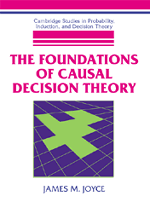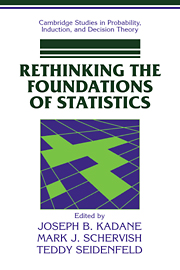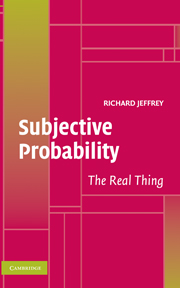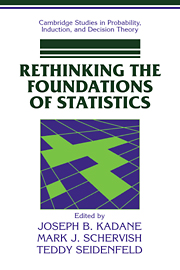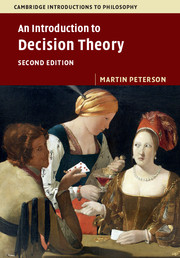The Foundations of Causal Decision Theory
This book defends the view that any adequate account of rational decision making must take a decision maker's beliefs about causal relations into account. The early chapters of the book introduce the non-specialist to the rudiments of expected utility theory. The major technical advance offered by the book is a 'representation theorem' that shows that both causal decision theory and its main rival, Richard Jeffrey's logic of decision, are both instances of a more general conditional decision theory. The book solves a long-standing problem for Jeffrey's theory by showing for the first time how to obtain a unique utility and probability representation for preferences and judgements of comparative likelihood. The book also contains a major new discussion of what it means to suppose that some event occurs or that some proposition is true. The most complete and robust defence of causal decision theory available.
- Most complete account of causal decision theory
- Very clear exposition and presentation of technical material
- Will interest economists, mathematicians and psychologists as well as philosophers
Product details
July 1999Hardback
9780521641647
284 pages
238 × 160 × 25 mm
0.605kg
Available
Table of Contents
- Preface
- Introduction: a chance to reconsider
- 1. Prudential rationality as expected utility maximization
- 2. Decision problems
- 3. Savage's theory
- 4. Evidential decision theory
- 5. Causal decision theory
- 6. A general theory of conditional beliefs
- 7. A representation theorem for causal decision theory
- 8. Where things stand
- Notes
- References.

